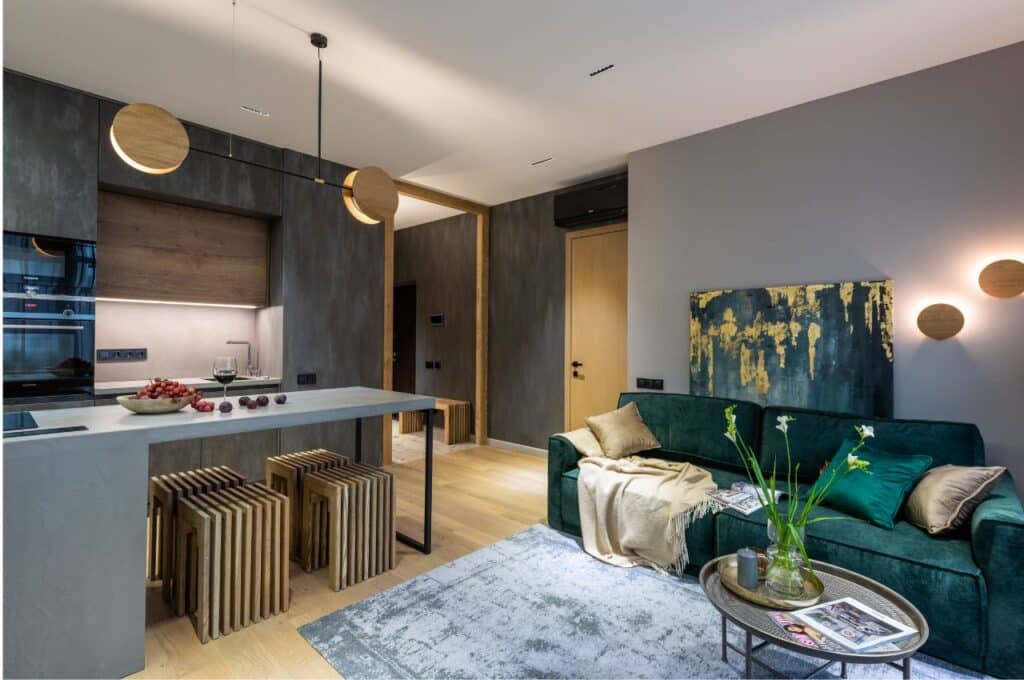Hey there! Have you ever dealt with bugs or rodents in your apartment even after the pest control folks have been through? It’s frustrating, right? Sometimes, despite everyone’s best efforts, those pesky pests just keep coming back. Let’s walk through what might be going on and what you can do if your apartment’s pest control efforts aren’t keeping those unwanted guests away.
Apartment Pest Control Not Working
First off, how can you tell if the pest control methods being used in your apartment aren’t effective? Well, the most obvious sign is that you keep seeing pests—like ants, roaches, or mice—after the treatment. If you’re still spotting these critters roaming around freely, something’s not right.
Several reasons can explain why the pest control isn’t working. Maybe the methods used aren’t strong enough for the type of pests in your apartment, or perhaps the pests have grown resistant to the chemicals, which can happen over time. Sometimes, the treatment might not be reaching the right spots where pests are hiding or breeding. Or, it could be that the amount of treatment applied isn’t enough to cover the severity of the infestation. Understanding these possibilities is the first step in tackling the problem.
What Does Pest Control Do in Apartments?
Knowing what pest control typically involves can give you a better idea of what to expect and whether the service you’re getting is up to par. Generally, a professional pest control service for apartments targets the areas where pests are most likely to live and breed. This includes kitchens, bathrooms, utility rooms, and any nooks and crannies where they can hide.
The type of treatment can vary based on the pest. For insects like ants and roaches, bait stations might be used alongside chemical sprays. For rodents, traps and poison are more common. Professional exterminators should also be using treatments that are safe for indoor use, especially in spaces as compact as apartments. They should explain to you what they’re doing, what chemicals they’re using, and any safety measures you should follow, like staying out of the sprayed areas for a certain period.
Where Does Pest Control Spray in Apartments?
Understanding where pest control experts usually spray can help you determine if they’re missing key spots that could be pest havens. Generally, a thorough pest control approach covers areas where pests are most active or could potentially enter from. This typically includes baseboards, behind appliances like stoves and refrigerators, under sinks, and around windows and doorways. These are the hotspots because they provide entry points into your home, hiding spots, or access to water, which pests love.
In apartments, exterminators also focus on places like bathrooms and kitchens more intensively because these areas have higher moisture levels which attract pests like cockroaches and ants. They might also treat cabinets and closets where bugs can hide undisturbed for a long time. If you notice that these areas are being overlooked during the pest control treatment, it might be why you’re still seeing pests around.

Steps to Take When Pest Control Fails
If you’ve given the professional treatments a fair shot and pests are still partying in your pad, it’s time to take some action. First, document what’s happening. Take notes on where and when you see the pests, and snap some pictures if you can. This documentation can be really helpful when you talk to your landlord or the pest control service about the ongoing issues.
Next, reach out to your landlord or property management. Show them the evidence that the current pest control efforts aren’t cutting it, and ask for a second round of treatment. Sometimes, just one round isn’t enough, especially if the infestation was more extensive than initially thought. It’s also possible that a different, perhaps stronger, treatment method might be needed, or more frequent visits might be necessary to get the problem under control.
Be clear about the issues and advocate for a more aggressive approach if the situation calls for it. If your landlord or property management seems unresponsive or reluctant to take further action, it may be necessary to remind them of their obligations to maintain a livable environment, as stated in most rental agreements.
DIY Pest Control Measures
While you’re waiting for your landlord to ramp up their efforts, or if you just prefer to take matters into your own hands, there are several DIY pest control strategies you can implement. Start by sealing up any cracks and crevices around your apartment, especially where pipes and wires enter. Use caulk or steel wool to block these entry points. Keep your space clean, especially from food crumbs and spills, as these attract pests.
For immediate relief, there are various over-the-counter products you can use. Baits, traps, and sprays can be effective against pests like ants and roaches. Be sure to follow the instructions carefully to ensure safe and effective application. Remember, though, these solutions are usually more of a temporary fix. For long-term control, professional treatment might still be necessary.
Legal Rights and Responsibilities
It’s important to know your rights as a tenant when it comes to dealing with pest issues. In most places, landlords are legally required to ensure their properties are pest-free as this is a major part of providing a habitable living environment. If your landlord fails to address a serious pest problem effectively, you might have grounds to pursue legal action, such as withholding rent or breaking your lease. However, these actions should be considered last resorts and, ideally, taken with legal advice.
If you find yourself needing to go this route, document all communications with your landlord about the pest issue, keep records of the pest control efforts and any expenses you’ve incurred as a result of handling the problem yourself.
How to Request a Re-Assessment of Pest Control Methods
If you’ve tried the usual pest control methods and they’re not working, it might be time to talk to your landlord or property management about reassessing the situation. Here’s how you can approach this conversation effectively:
Start by Gathering Your Facts:
Before you reach out, make sure you have all your facts straight. Collect any evidence of ongoing pest issues, document previous pest control attempts, and note any communication you’ve had with your landlord about the problem. This will help you present a clear case.
Communicate Clearly and Professionally:
When you speak to your landlord, be clear and professional. Explain that the current pest control methods are not sufficient and express your concerns about the safety and livability of your apartment. It’s important to stay calm and cooperative—show that you’re looking for a solution, not just airing grievances.
Propose Alternatives:
Research some alternative pest control methods or companies that might be more effective. Suggest these alternatives to your landlord. Sometimes, landlords might not be aware of all the options available, so bringing fresh solutions could be very helpful.
Request a Specific Action:
Be specific about what you want your landlord to do. Do you want them to hire a different pest control service? Would you like them to try a specific treatment? The more specific you are, the easier it is for your landlord to act on your request.
Follow Up in Writing:
After your discussion, follow up with an email summarising what was discussed and any agreements made. This provides a record of your efforts to resolve the issue and ensures there’s no confusion about what was said.
Preventive Measures to Avoid Future Infestations
Taking proactive steps to prevent pest infestations can save you a lot of trouble down the line. Here are some practical tips you can implement to keep your living space pest-free:
Keep It Clean:
Regular cleaning is one of the most effective ways to prevent pests. Make sure to clean up food crumbs, dispose of garbage regularly, and keep surfaces clean and clutter-free. Pests are attracted to food and can thrive in messy environments.
Store Food Properly:
Store food in sealed containers and avoid leaving pet food out for long periods. Pests like ants and roaches are often drawn to easy food sources, so keeping your food sealed up can help deter them.
Seal Cracks and Openings:
Take some time to inspect your home for any cracks, holes, or gaps that pests could use to enter. Use caulk to seal any openings around windows, doors, and baseboards. This not only keeps pests out but can also improve energy efficiency.
Manage Moisture:
Many pests are attracted to moisture, so it’s important to fix leaky pipes and faucets and use dehumidifiers in damp areas of your home. Regularly check under sinks for moisture and clean any standing water immediately.
Dispose of Garbage Properly:
Make sure your garbage is disposed of regularly and stored in sealed bins. Accumulated trash can attract rodents and other pests, so keeping your garbage area clean is crucial.
Conclusion
Dealing with persistent pests in your apartment can be a real headache, but you’re not without options. From understanding where and how pest control should be applied, to taking proactive steps yourself and knowing your legal rights, you can take control of the situation. Don’t hesitate to push for the resolution you deserve, and remember, staying informed is your best defence.
If you’re dealing with pests and feeling overwhelmed, consider reaching out for professional advice or even legal counsel to ensure your living space is safe and comfortable. You’ve got this!





